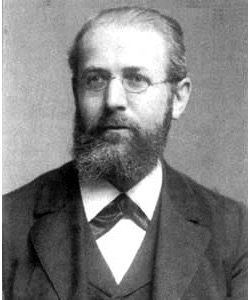
May 2, 2018
Speaker: Cole Franks
Title: Quantum Marginals, Moment Polytopes and Algorithms
Abstract: With many group actions one can associate a map known as a moment map, the image of which over the entire group is a convex polytope. For example, given a quantum state held between d parties, the map from the state to what the parties see (known as the marginals) is such a map for the action of GL(n)^d. There are techniques for describing and testing membership in the moment polytope, but none so far have been capable of producing the preimage of the point in question. After the necessary background on moment polytopes, I'll discuss an extremely simple algorithm to produce an approximate preimage of a point in the moment polytope for the quantum marginal problem.
April 25, 2018
Speaker: Robert Laugwitz
Title: Hopfological algebra and categorification at prime roots
Abstract: In 2005, Khovanov suggested to study stable categories of modules over a Hopf algebra in order to categorify quantum groups at a root of unity. This theory, Hopfological algebra, was further developed by You Qi in the 2010s. For a prime root of unity, this construction leads to categorifications of the cyclotomic integers (at root order p), as well as the small and big quantum group of sl2 (work of Khovanov--Qi, Elias--Qi). This talk provides background for the talk on Friday in the Lie Groups/Quantum Math Seminar. I will talk about aspects of the theory that will only be mentioned briefly on Friday.
April 18, 2018
Speaker: Semeon Artamonov
Title: Towards Noncommutative Cluster Algebras
Abstract: Cluster Algebras were introduced by Fomin and Zelevinsky as a combinatorial tool for the study of coordinate rings of character varieties. In the first part of my talk I will give an overview of Cluster Algebras and their applications in Representation Theory. In the second part, I will talk about largely open problem of constructing noncommutative generalizations of Cluster Algebras and some partial results in this direction.
April 11, 2018
Speaker: Saurabh Gosavi
Title: Splitting index of quadratic forms
Abstract: Given a quadratic form over a field, we ask the question how close it is from being split? In other words, what is the smallest degree field extension one needs to make to make it a hyperbolic form? In this talk, we will give upper bounds for splitting indices for forms defined over function fields of curves.
April 4, 2018
(joint with GCS, will be held in the Graduate Student Lounge at 12:15 PM)
Speaker: Louis Gaudet
Title: Louis' Talk
Abstract: Given a (finite) graph G, there is a natural finite abelian group we can associate to G, called its Jacobian group. There are different sources of motivation for studying these groups. They are the “tropical” (i.e. piecewise-linear) analogs of classical algebro-geometric objects. They are used as models for certain physical systems—so-called “sandpile groups.” The statistics of Jacobian groups of random graphs are related to the Cohen-Lenstra heuristics, which describe statistics of ideal class groups of number fields. For instance, a fun fact: the Jacobian of a random graph is cyclic just about 79% of the time.
Rather than discuss these connections in depth, we’ll explore a more basic question: which groups actually appear as the Jacobian of some graph? Along the way, we’ll observe and exploit connections of the Jacobian group to classical graph theoretic properties of interest: planarity, counts of spanning trees, etc. We’ll construct graphs whose Jacobians realize a large class of groups, and we’ll prove that there are infinite families of groups that cannot be realized as the Jacobian of any graph. The general question, however, is still open, and I will point out several possible research problems.
March 28, 2018
Speaker: Zhuohui Zhang
Title: Exceptional Groups
Abstract: I will talk about the explicit constructions of exceptional Lie algebras and their representation theory, based on Clifford algebra, Jordan algebra and octonions.
Feb. 14, 2018
Speaker: Sven Moeller
Title: On the Classification of Holomorphic Vertex Operator Algebras of Central Charge 24
Abstract: I will describe the current state of research concerning the classification of (strongly rational) holomorphic vertex operator algebras (VOAs) of central charge c=24 (dubbed Schellekens' list). Moreover, I will explain how (probably) all 71 cases on Schellekens' list can be obtained as cyclic orbifold constructions from the Leech lattice VOA in analogy to the construction of the Niemeier lattices from the deep holes of the Leech lattice.